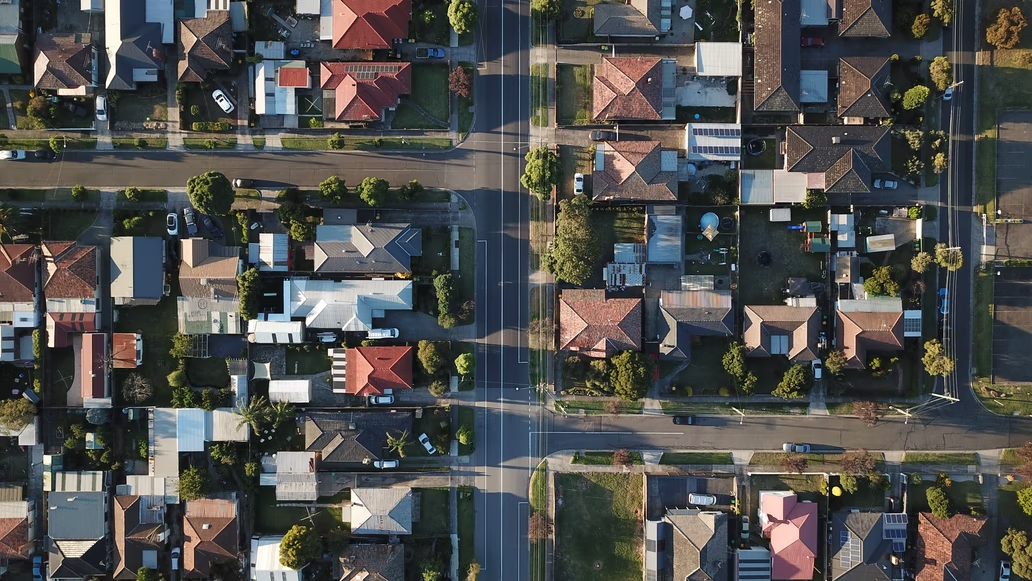5 Things To Cross Off Your List Before You Buy That Property

Real Estate is one of the best ways to generate wealth. There is hardly a time when land prices reduce. It is a secure long-term investment that brings in great profit. In most cases, a person will only sell his landed properties for cheaper prices out of desperation.
Unfortunately, because of the prevailing ignorance in society, several investors have fallen victim to fraudsters. These fraudsters pretend to own properties, collect money from unsuspecting victims, and disappear.
Often the victim is never able to retrieve the lost funds. Even if you recover the money eventually, it takes time, energy, and resources. Some people prefer to deal with estate agents or property lawyers instead to avoid dealing with fraudsters.
They have more experience in the business and are usually a safer option if they are licensed. However, this is usually more expensive because these agents demand a high commission for their services.
To be on the safe side, you should have some knowledge of things to look out for before buying that property. We know you have the funds, you’re ready to be a landlord now, and we’re super excited for you.
But before you take that deal, check out some of our tips. We don’t want to say “we told you so”.
1. Title

This element is so crucial to the agreement that without it, the entire contract is empty, null, and void. As the legal term goes, nemo dat quod non habet. You cannot give what you do not have. Any person who decides to sell a piece of property must have the legal capacity to do so.
A person may acquire legal authority to sell the land through the title documents. It may be by deed, by Will, by Mortgage, etc. Since a fraudster can forge title documents, we advise you to conduct a proper search in the Ministry of Lands or any equivalent regulatory agency.
There should be an unbroken chain of titles from one person to another, at least in the last 20 years. If you buy the land from a person with a defective title, you may lose your investment completely, regardless of whether you have developed the property.
The court can simply declare that you vacate the premises and settle with the person who sold the land to you. It is worse when the court finds that you were negligent and failed to do any background check or research before purchasing the land.
Also, there have been situations where a person steals the title deed and impersonates the owner. The fact is, real estate investments do not come cheap. Acquire every bit of confirmation, assurance, and security from the vendor before you part with your hard-earned funds. At the very least, request a valid ID card. You can even ask for biometric scanning if that is what it takes to rule out identity theft.
Lastly, if someone sells your property under fraudulent circumstances, you must speak up as soon as you get notice. If you deliberately refuse to speak up even after notice of such fraud, the court may regard this as acquiescence.
Some people remain silent when an innocent third party buys their land from a fraudster. They deliberately wait till the third party has finished developing the land or building the house, then show up to claim the property.
This is a fraudulent move, and it can backfire. As a legal principle states, he who sleeps over his rights sleeps in perpetuity. If you suffer a legal injury and deliberately remain silent, the court may interpret it as forgoing your rights. Moreso where an innocent third party is concerned.
The court will direct you to recover your money from the person who sold the land and award the land to the innocent buyer who bought the property in good faith. So think twice before embarking on such mischief.
2. Condition of The Property
If you want to buy a dilapidated building and renovate it to your taste, that’s completely fine. Just as long as you know it is a dilapidated building. There are certain defects that the court expects you to see before you purchase the property. That is of course, when you diligently inspect it. You can even pay a house agent to conduct the property inspection so you don’t miss out on anything.

Also, there may be hidden defects in the property. It can range from polluted water, erosion, flood, etc. The vendor must be transparent enough and disclose such defects to the buyer. Failure to do so may be sufficient to repudiate the entire contract and provide a refund.
If the court finds that the buyer neglected to inspect the property before buying it, there may be no remedy for him. On the other hand, the seller is not to use this as an excuse to sell a defective property to an unsuspecting buyer and claim that the buyer should have seen the defects.
In all, the court will determine the outcome based on the circumstances of the case. But as we have said, prevention is better than cure. Inspect that property thoroughly before you sign that agreement.
3. Access to Basic Amenities
While this is not necessarily a legal requirement, it is a factor you ought to consider. I mean, what’s the point of buying a property that would cause inconveniences?
Depending on the use of the property, you should check the proximity to hospitals, markets, schools, bus stations, and so on. Also, consider electricity, water supply, road network, proper ventilation, security, and internet or mobile services.

Lastly, is it close enough to human civilization? We’ve heard of monkeys and snakes invading people’s homes, and that’s because the houses were too close to the natural habitat of these animals.
Trust me, you do not want to walk in one day and see monkeys swinging around in your sitting room.
4. Government Approved
People often neglect to consider town planning. The government has an approved plan for each town, which covers drainage systems, waterways, sewage, waste disposal, reserved areas, etc. Some people neglect to acquire government approval and end up building houses on waterways.
They get notifications from the government warning them to take down such buildings. The house could even be marked, but these people simply repaint it and hide the markings. They can rent or sell the property to an unsuspecting buyer, who will be on the receiving end when the government comes knocking.
A lady who suffered this fate shared her experience on Facebook. Government agents marked the house severally, but the landlady simply repainted it and leased it. When the government came to pull down the structure, the lady had only spent a month there. Her properties got damaged, and she lost the money she paid for the lease.
Please be wise. You can never be too careful.
5. Backlog of Utility Bills
This is very common for houses with post-paid meters in Nigeria. Some people have unpaid utility bills running into millions. It makes no sense for you to be saddled with such, to pay for services you did not use, just because of real estate investment.
Utility bills include electricity bills, water board, waste disposal, local government tenancy rates, etc. Ensure that there is no embargo whatsoever on that property before you purchase it, so you can enjoy your investment quietly.
Conclusion
Real estate is one of the most assured long-term investments. But what was supposed to be a blessing can quickly turn sour if you fail to protect yourself.
As I learned from reading ‘The Richest Man In Babylon,’ never part with your gold unless you can guarantee that it will bring returns to you.
All images are sourced from pexels & Unsplash
Every issue has a legal side to it, whether we realize it or not. My goal is to educate my audience about these legal issues that arise in our societies, especially as a black woman. My Legal articles bring a refreshing, fun, and objective view to trending topics across the globe. In the end, I hope you can learn or unlearn a thing or two wherever the need arises.

